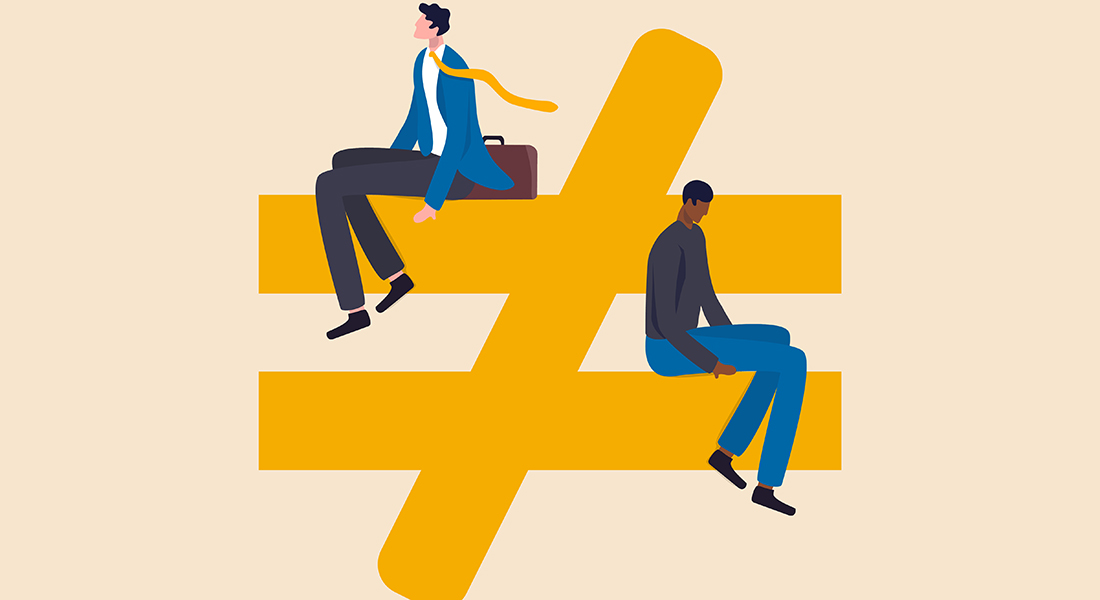Rich and poor both willing to pay for more equality
At both ends of the income scale, opponents of inequality will pay to equalise economic differences in society – as long as it is done publicly. This is shown in a new study from Center for Economic Behavior and Inequality (CEBI).

Over the past few decades, many Western countries have experienced steadily rising inequality and declining social mobility. This worries the general public and puts redistribution back on the political agenda. But what makes people support economic redistribution?
In traditional theory, individuals focus entirely on how much income and consumption they can achieve themselves. An alternative prevailing theory suggests people are willing to pay to close the gap for those who have more than themselves and will also pay to close the gap for those who have less than themselves. These equality motives should be crucial to people – both in terms of private redistribution (in the form of charitable donations) and public redistribution (through tax policy).
A team of researchers at the Center for Economic Behavior and Inequality has now tested this alternative theory in the study ‘Inequality aversion predicts support for public and private redistribution’, published in the scientific journal PNAS.
‘We have measured inequality aversion in a large population sample: 9,000 Danes between the ages of 20 and 64,’ explains Professor and Centre Director Claus Thustrup Kreiner.
People are willing to lose income if only people with higher income lose even more. This is achieved by public redistribution policies. However, they are less willing to sacrifice money to charities as it increases the gap to those with higher incomes
Agree on public redistribution
The predictions tested by the researchers are that people with a strong aversion to economic inequality that is in their own favour show greater support for both public and private redistribution.
‘These individuals are willing to sacrifice a portion of their own income if it reduces the income gap to people with lower incomes. Both public and private redistribution achieve this,’ explains Claus Thustrup Kreiner.
People who strongly dislike inequality that is unfavourable to themselves are also positive towards public redistribution. In contrast, they are less likely to contribute to private redistribution through charitable donations, according to the theory.
‘These people are willing to lose income if only people with higher income lose even more. This is achieved by public redistribution policies. However, they are less willing to sacrifice money to charities as it increases the gap to those with higher incomes,’ emphasises Claus Thustrup Kreiner.
Donations to charity depend on equality motive
The researchers linked the participants' inequality aversion to information about their support for public redistribution and administrative data about their donations to charity.
The study confirms the predictions of the theory: Support for public redistribution is common among people with high inequality aversion, regardless of the type of equality motive. But private redistribution depends on the equality motive:
‘People with the highest aversion to advantageous inequality are 8 percentage points more likely to donate to charity compared to those with the lowest aversion,’ says Claus Thustrup Kreiner and continues:
‘At the same time, people with the highest aversion to disadvantageous inequality are 5.5 percentage points less likely to donate to charity than those with the lowest aversion.’
According to the researchers, the results emphasise that support for economic redistribution is not only motivated by standard self-interest, but also by various equality motives that create aversion to inequality.
‘You can more accurately predict support for economic redistribution by also taking into account people's inequality aversion. In this sense, our study is in line with political-economic theories that incorporate people's social preferences,’ he says.
In addition to Claus Thustrup Kreiner, Thomas F. Epper, Ernst Fehr, Søren Leth-Petersen and Isabel Skak Olufsen – all affiliated with CEBI – and Peer Ebbesen Skov from the University of Auckland and the Rockwool Foundation Research Unit contributed to the study. Read it here
Contact
Claus Thustrup Kreiner
Professor
Center for Economic Behavior and Inequality (CEBI)
Department of Economics
Mail: ctk@econ.ku.dk
Phone: +45 35 32 30 20
Simon Knokgaard Halskov
Press and communication advisor
Mail: sih@samf.ku.dk
Phone: +45 93 56 53 29
